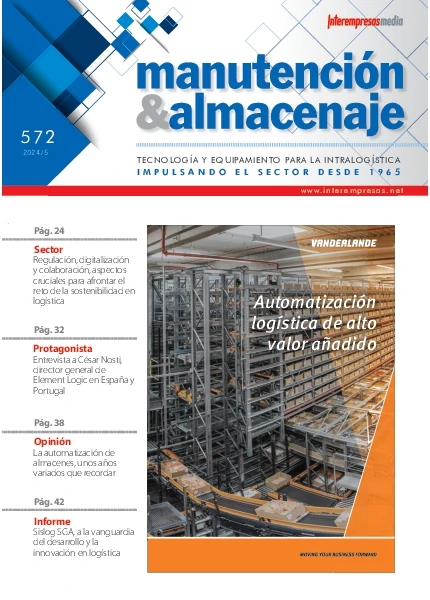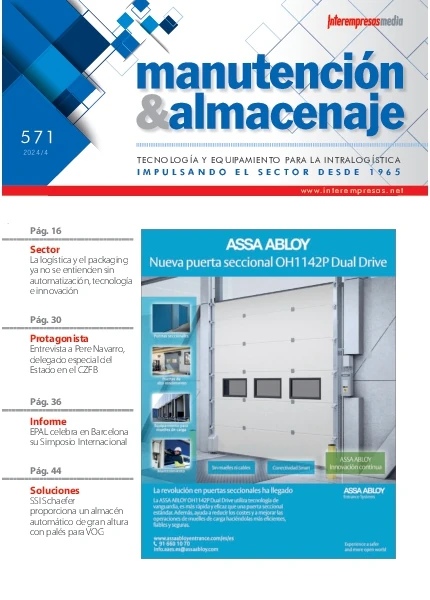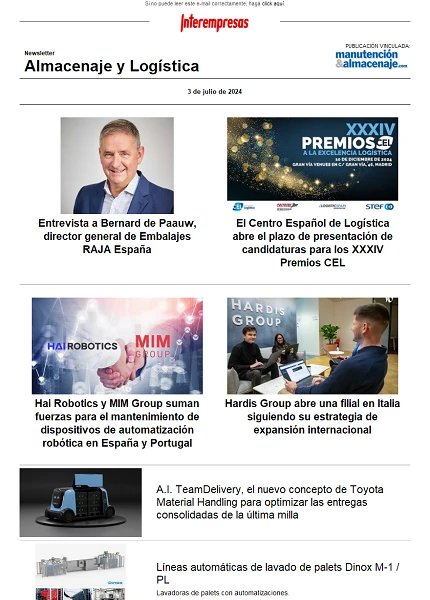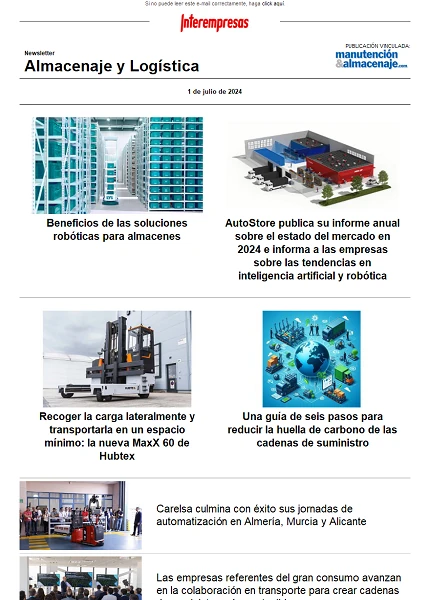Barcelona receives the Forum Supply Chain ‘Because today it is necessary aliarse and think together'
26 March 2012
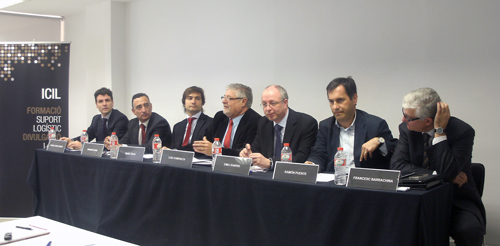
The Forum Supply Chain, that was moderated by Lluís Doménech, director of Learning of the Foundation Icil, had the participation of: Miguel Ángel Miguel, director Supply Chain of Group Mahou- San Miguel; Marc Grau, Corporate Supply Chain manager of Celsa; Ramón Bridge, general director of gas gas; Francesc Barrachina, general director of BC Quality consultancy; Emili Xandre, director of Operations of Groupe Seb Iberian; and Mariano Sanz, Commercial technical director of Eulen Logistical Services.
To initiate the table of debate, launched a first question on the meaning of the term Supply Chain and how adapt it to the reality of the companies.
Miguel Ángel Miguel (Group Mahou-San Miguel), required that “in Spain the supply chain still has not arrived to the degree of chain of supply reached in other countries, as for example the Anglo-Saxons, but that is in roads to reach a greater importance. The supply chain is the catalyst of an aim: the collaboration” but so that it give collaboration out of the company, before is necessary imbricar this concept to internal level in the company. “The concept of supply chain can cover a lot of fields: chain of procurement, planning of the production, physical distribution, etc., but can go further and “include the collaboration, even with the customers”.
Emili Xandre (Groupe Seb Iberian) specified that the chain of supply “begins in the customer because it is necessary does a forecast of his demand” and that, therefore, is an increasingly long “chain and with problems of visibility. The supply chain has to contribute value added to an affordable price” but to achieve it, “it is necessary to work on the chain of supply in terms of efficiency, service and cost, and it is necessary to include in this chain to customers, providers and, in as that fields, also to the competition”. It treats to generate sinergias “so that all win”.
For Marc Grau (Celsa), the chain of supply is the result of the fusion of the planning of the production and the logistics, being at present a much more complicated concept and complex because in the world has changed the form to buy, produce and sell, in the sense that the prime matter can buy in a point of the planet, be transformed in another and transport it until different destinations to be finally sold in other a lot of geographic points.
Ramón Bridge (gas gas) incidió in that “the concept of supply chain is changing” because, if it is necessary to integrate to the final customer, “each chain has to adapt to his needs not to lose it”. Also it referred to the collaboration between companies, signalling that “the arrival of the crisis has contributed to that companies competitors collaborate in trying resolve common problems”, especially in logistical appearances.
Francesc Barrachina (BC Quality consultancy) also referred to that in Spain “does not know still what is exactly the concept supply chain, but the companies begin to pose actions like the concentration of providers, the only request and the returns. And the chain of supply has to achieve coordinate all these processes and many more”. Thus “the concept of supply chain it is necessary to apply it with criteria adapted to the business”.
Mariano Sanz (Eulen Logistical Services) added that “the confidence is fundamental in any chain of supply because all the links of this chain pursue a same aim”. From here, “to develop well a chain of supply does lacking specialisation and flexibility of the parts because all the processes are critical”.
On the concept of confidence inside the supply chain, Miquel Ángel Miguel signalled that “it is necessary to know share the information” and that the challenge is in “transforming the information in some strategic axles inside the company to achieve satisfy to the customer and to the final consumer”. Likewise, Marc Grau entered the concept of “chain of value” associated to the chain of supply, signalling that it is necessary to analyse very all the processes to know with concretion in what is spending the money. This will contribute to have a supply chain with value added”.
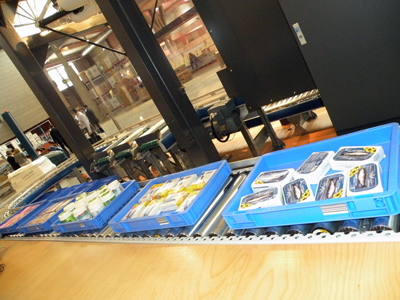
And on this idea, Emili Xandre added that “the companies have to devote to his core business and leave the chain of supply in hands of the experts”. This also have to begin it to do the small and medium enterprises, looking for to the best providers of services that do not have reason be the biggest” there are logistics operators of average or small dimension that “can offer some excellent services adapted to the SMEs”.
On the relation between SMEs and supply chain, and of if they have future in a market that demands to have very organised the chains of supply, of the distinct interventions of the speakers of the table arose constataciones like that the SMEs have to specialise to be able to subsistir and that they have to collaborate between them, especially in logistical fields; that some will disappear or will be absorbed by the big companies, other resurgirán if they find his niche of concrete market and also will appear of new to give service to the big companies of some sectors; and that the learning of the professionals is indispensable for the small and medium enterprises.
Another of the subjects analysed by the professionals of the table of debate was the one of how assume the risks that arise constantly in the chain of supply. They posed questions like the need that the professionals that are headed by the chain of supply know to see the threats, risks and problems associated to the supply chain and of this form be prepared to face to find alternative and, finally, resolve them. In reference to the map of risks associated to the chain of supply, that is tremendously cambiante, aimed the ones of cultural type, since each country has his peculiarities; the legislative, with the apparition of new normative and reglamentaciones that can cause the modification of the chain of procurement and of supply; or the technological, with the apparition of new tendencies in the form to consume and buy.
In this point entered another question related with the risks referred to if buy, cater or sell in emergent countries can ocasionar problems in the chain of supply.
Miguel Ángel Miguel (Group Mahou-San Miguel) explained that, for example in China, “are arising social tensions that can finish influencing in the chain of supply. Thus, it is necessary to have prepared a plan of contingency”. Ramón Bridge (gas gas) aimed like other existent risks in countries like Indian or China the refusal of the companies to “accept small European requests due to the fact that his productions are very elevated to satisfy the own internal demand of the country”. Besides, “you can find you with problems related with the patent rights and intellectual”. For Emili Xandre (Groupe Seb Iberian), “always arise and will continue appearing new risks, as for example the linked to the upward evolution of the costs, especially the tied to the hand of work and to the transport”.
And according to Marc Grau (Celsa), “like the chain of supply has to be more oriented to the reliability that to the cost, this has to be prepared to change and adapt to the characteristics of the markets in which a company decides to produce or cater”.
To continuation spoke of if the decisions in the chain of supply of the companies have to be centralised, and even also if it is necessary to centralise the referred to the production.
Miguel Ángel Miguel (Group Mahou-San Miguel) manifested that “in the chain of supply the decisions have to be centralised, even the referred to the planning of the production because the fact to know them allows to take decisions more precise in the group of the supply chain”. And it added that “centralise the taking of decisions also allows to be more efficient and obtain a greater profitability in the company, generating profits”.
On this point, Francesc Barrachina (BC Quality consultancy) explained that in the sector of the distribution “there are companies that are decentralised the taking of decisions” because in as which sectors and companies, the centralisation reduces the flexibility. “If it decentralises ordenadamente can obtain advantages”.
Emili Xandre (Groupe Seb Iberian) pleaded for “to have a global strategy in supply chain, but taking into account that no to all the customers can them treat of the same way”.
And Ramón Bridge added that the centralisation in the taking of decisions is a delicate process because “the world is very complex, exists a lot of information and therefore finishes being a risky operation”.
Closed this part of the debate Marc Grau (Celsa) pleading for “think in global, but acting in venue”, since it is in the local field where has the good information. The following step is that this information circulate properly in all the organisation.
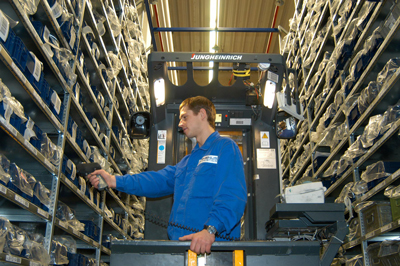
The last of the subjects treated was the one of if the chain of supply will finish being a service costumizado for each customer.
There was different contributions, incidiéndose in that everything is in function of the type of customer; if it treats of a consumer, the chain of supply will not adapt because it would lose profitability and would grow the costs. Likewise, in function of the type of product, neither goes to produce this costumización because the chains would multiply and would do more complex. Therefore, it is necessary to go with care because costumizar can arrive to break the chain of supply. Although the new tendencies in B2C are marking the guidelines because they are building chains adapted to the customer.
The final summary of the Forum Supply Chain was that the chains of supply are in permanent change and evolution and that the companies have to go readaptándolas in function of the changes that produce in some surroundings globalizado.

